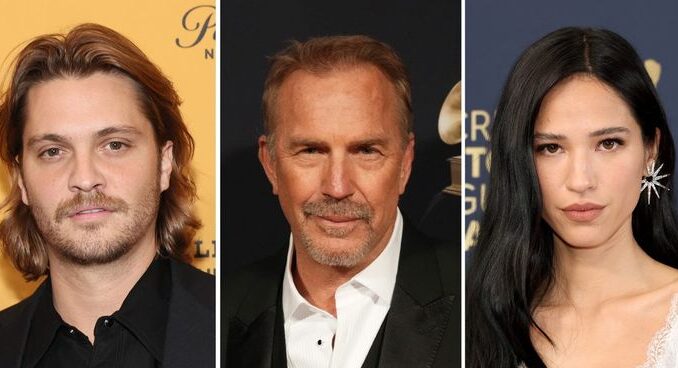
The Unfinished Symphony: Costner, Dutton, and the Elusive Chord of Closure
The rugged, windswept plains of the Dutton ranch on “Yellowstone” have become more than just a backdrop; they are a character in themselves, a vast, stoic entity mirroring the show’s patriarch, John Dutton. And for a show so deeply entwined with its central figure, the news that Kevin Costner – the very embodiment of Dutton – might return, but only if “the writing and timing are right,” rings with the resonance of a demand for artistic integrity in an industry often driven by expediency. It’s not just a logistical negotiation; it’s a poignant reflection on the elusive alchemy of good storytelling, a testament to the actor’s commitment to character, and a mirror to the universal longing for narratives that find their true, resonant close.
Costner’s stipulation regarding “the writing” is not merely about dialogue or plot twists; it’s a profound statement about the arc of a character who has become as iconic as the Stetson he wears. John Dutton is a man carved from the very land he fights to protect – complex, flawed, often ruthless, yet driven by a fierce, almost primeval loyalty. For Costner to return, the narrative must offer a resolution commensurate with the weight of this character. It cannot be a rushed cameo, a convenient plot device to tie up loose ends. Instead, it must be a chapter that truly belongs to Dutton, one that honors his journey, whether it concludes in triumph, tragedy, or a quiet, earned peace.
Imagine a grand symphony interrupted mid-movement. The audience is left with a lingering discord, a gnawing uncertainty where a harmonious resolution should be. John Dutton’s story, as it stands, is that unfinished symphony. For Costner, “the writing” is the imperative for a masterful composer to bring that symphony to its destined, powerful end. It’s about more than just bringing him back; it’s about why he returns and what he does when he gets there. Does he reclaim his throne with a final, decisive act? Does he pass the torch, or perhaps, finally, find a moment of peace before the inevitable? The writing must ensure that whatever his ultimate fate, it feels earned, organic, and true to the man who has sacrificed so much for his land and legacy. Anything less would be a disservice to the character, the actor, and the millions of viewers who have invested their emotional currency in the Dutton saga.
This brings us to the second, equally crucial condition: “the timing.” In the world of television production, timing is often a brutal master, dictating schedules, demanding compromises, and sometimes forcing creative hands. For Costner, an actor with his own significant creative endeavors – notably his ambitious multi-part Western epic, “Horizon” – timing isn’t just about calendar dates. It’s about the optimal moment within the narrative, the point where his return would make the most profound impact, where his presence wouldn’t feel forced or tacked on, but rather a vital, irreplaceable piece of a mosaic that needs its final, crucial elements.
Consider the ebb and flow of a river. There are moments when its currents are strongest, when its path is most defined. Costner’s “timing” suggests a return when the narrative currents of “Yellowstone” are at their most critical juncture, perhaps in the final, culminating moments of the series, when the stakes are highest and Dutton’s presence is not just desired, but narratively imperative. It speaks to a respect for the story’s natural rhythm, understanding that even the most anticipated returns can fall flat if not orchestrated with precision. A perfectly timed appearance can elevate an entire season, providing the emotional punctuation the audience craves. An ill-timed one, shoehorned into a production calendar, risks feeling disjointed, undermining the very impact it seeks to create.
Ultimately, Costner’s measured statement is a powerful illustration of the delicate dance between art and commerce, between personal commitment and collective expectation. It elevates the conversation beyond mere speculation and into the realm of artistic principle. It acknowledges the visceral connection audiences have to these characters and demands that their farewells, or their climactic re-entries, be handled with the care and reverence they deserve.
In the vast, sprawling epic that is “Yellowstone,” John Dutton is the magnetic North, the gravitational center around which all else revolves. For Kevin Costner to return, his conditions remind us that the writing must ensure the story’s compass still points true, and the timing must ensure that its final, resonating steps are taken in perfect stride. It’s a hope for not just an ending, but the right ending – a final, powerful chord in an unfinished symphony, echoing across the wide-open spaces of the imagination, leaving no doubt that John Dutton’s legacy, both on screen and off, was indeed, right.
